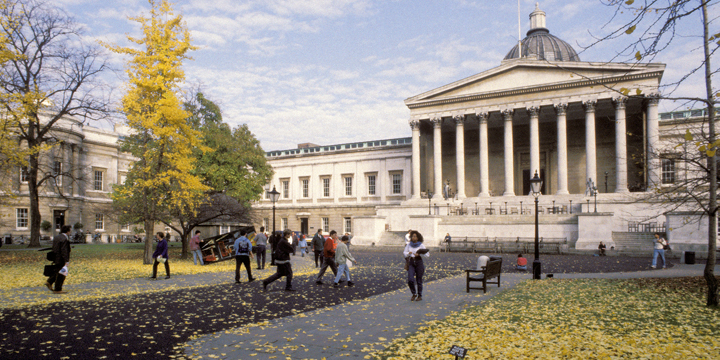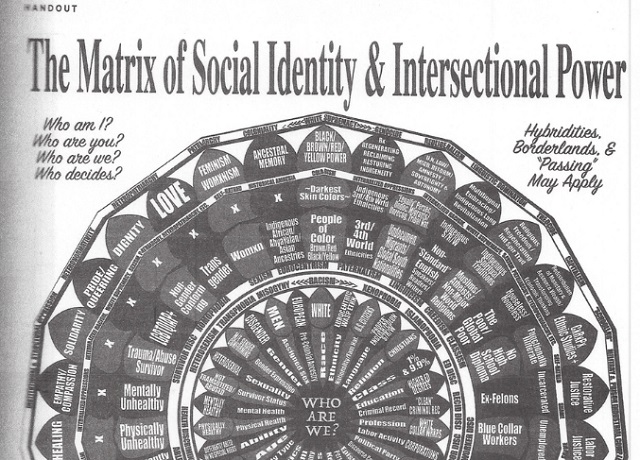It has become clear since October 7 that U.S. college campuses have a significant role to play in the struggle for a free Palestine. University students continue to demonstrate in campus quads and administration buildings while educators teach about the occupation of Palestine and the ongoing genocide of Palestinian people in their classrooms. Universities across the country have taken measures to squelch these acts.
Reports have surfaced of arrests of student-protestors at Brandeis and Brown Universities; Columbia University’s suspension of Students for Justice in Palestine and Jewish Voice for Peace chapters on their campus; the unfair firing of Smith College professor for educating her students about the assault on Gaza; and the Harvard Law Review’s poor decision to kill a piece, “The Ongoing Nakba: Towards a Legal Framework for Palestine,” by Palestinian author Rabea Eghbariah.
Yet academic repression unfolds, more often, through quiet, bureaucratic channels. I offer just one example of this by drawing attention to a sequence of events at the University of California, Santa Cruz:
On November 9, the UCSC chapter of Students for Justice in Palestine organized a sit-in at the base of campus, part of a nationwide day of action, which I attended with many instructors who heeded the call to cancel class that day. Attendees peacefully occupied the intersection of Bay Street and High Avenue, which resulted in the main entrance to campus being shut down for most of the day. That evening, the Santa Cruz Hillel sent out an email with the subject line “Standing Strong: Our Response to Today’s Protest.” Upon hearing about the protest, Hillel, in their words, “immediately reached out to university administrators and campus police to ensure that they were aware of the event and taking swift action to keep Jewish students safe.” Hillel alleged that “the rhetoric at the protest justified and celebrated torture and slaughter of Jews.”
Upon reading Hillel’s email, I recorded my own, first-hand experience of events, and sent my account to Santa Cruz Hillel and UCSC administrators. Find it below.
I received uninspired, de-personalized responses from the Dean of Students, Garret Naiman, and Executive Vice Chancellor, Lori Kletzer, thanking me for my account.
On November 13, just after 10 a.m., the UCSC chancellor, Cynthia Larive sent out an email addressing the entire “campus community,” condemning the sit-in that had occurred the previous Thursday. Instead of drawing attention to the ongoing genocide of Palestinians as the reason why students took to the streets to prevent business as usual, the chancellor accused protestors of “disadvantaging some of our most vulnerable community members,” explicitly mentioning “those with mobility limitations, those who rely on buses for transportation,” and “those who are solely responsible for childcare.” Her argument weaponized disabled community members’ experiences but did not include any testimonials or direct quotes from these individuals. Her sensationalized account of the protest was unsubstantiated:
The same day, UCSC Executive Vice Chancellor, Lori Kletzer, sent out an email to campus educators, clearly targeting instructors’ freedom to determine the content of their classes.
The language of Kletzer’s email had an air of mundanity to it, as it cited University policies that impose “limits on using the classroom and courses of instruction for political advocacy.” Most notably, she cited Regents Policy 2301, which prohibits “misuse of the classroom by allowing it to be used for political indoctrination, for purposes other than those for which the course was constituted,” as well as the cancellation of a class session “for the purpose of encouraging students to participate in a protest or rally.” Kletzer claimed, in this email, that her goal was “to draw attention, and provide references, to the University of California policy regarding academic freedom and political advocacy in the classroom and other institutional spaces.” She also noted “the importance of ensuring that students are not made to feel intimidated, threatened, and/or excluded in their classes.” It’s ironic, then, that this email appears to have been sent for the sole purpose of intimidating those of us teaching classes who feel it is our responsibility to educate our students about what is taking place in Gaza.
Communications from Chancellor Larive and Lori Kletzer came after UC President Michael Drake sent a message to members of the UC community on November 10th citing “Regents Policy 4403: Statement of Principles Against Intolerance,” which mentions actively challenging antisemitism but does not name the targeted attacks Palestinian college students are facing right now. And on November 15th, UC President Drake made remarks at the UC Board of regents meeting about new initiatives the University would be unrolling to allegedly “support students, enhance campus safety, and improve the climate on campus in light of recent events in Israel and Gaza.” However, the plan he outlined entirely fails to do this:
Our campus chancellor felt the need to reiterate President Drake’s statement in a “campus update” the following day, reproducing this so-called “viewpoint-neutral” ideology.
However, it’s clear –– more than ever –– that there is no such thing as so-called “neutrality” on the part of campus administration. As the above example reflects, the administrators of the University of California are acting in highly politicized ways, entirely unaccountable to the facts in Gaza or on their own campuses. There has been widespread attack on students’ rights to protest, as we’ve just seen exemplified by student conduct charges brought on UC Irvine students speaking in support of Palestine. But this issue has also turned into one of worker control, as administrators use University codes of conduct and regents’ policies as threats to restrict academic freedom inside and outside the classroom. These acts are no less nefarious than the liquidation of student groups, the suspension of individual students (which most recently we’ve seen at NYU), and gross instances of police brutality toward protestors on University campuses.
As blatant acts of repression, such as arrests and firings, continue to garner mass attention from the pro-Palestine Left, we also must keep the more banal ways in which American Universities censor and suppress discussion around Palestine in mind. Ignoring these less conspicuous acts of repression reproduces the chilling effect that those of us learning and teaching at Universities feel right now. Those of us in the University need to continue to fight this censure and censorship –– particularly the anti-Zionist Jews among us, who have a leading role in dispelling false associations between anti-Zionism and antisemitism. However, we also need a watchful eye kept on public universities by those who are unaffiliated with higher education. As this example makes clear, millions of tax dollars are being taken by these universities, and are being put towards campaigns that strive to surveil and silence students and workers fighting for what’s right.
Before you go – We need your help. Mainstream media’s wilful complicity in the genocide of Palestinian people is a reminder of just how vital our work at Mondoweiss is. This article and our extensive coverage since October 7 have been made possible by readers like you who donate to keep our reporting free and independent.
With your support, we will continue covering the ongoing events in Gaza and across Palestine, as well as amplifying the Palestine movement worldwide. Together, we will make sure to keep reporting Palestinian stories, even when the rest of the world looks away.
Related posts:
Views: 0
 RSS Feed
RSS Feed

















 December 14th, 2023
December 14th, 2023  Awake Goy
Awake Goy 











 Posted in
Posted in  Tags:
Tags: 
















